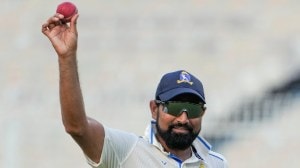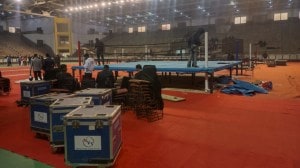Four months after polls, Pak in leaderless drift
Pakistan is in a leaderless drift four months after elections, according to Western diplomats and military officials...

Pakistan is in a leaderless drift four months after elections, according to Western diplomats and military officials, Pakistani politicians and Afghan officials who are increasingly worried that no one is really in charge.
The sense of drift is the subject of almost every columnist in the English-language press in Pakistan, and anxiety over the lack of leadership and the weakness of the civilian government now infuses conversations with analysts, diplomats and Pakistani officials.
The problem is most acute, they say, when it comes to dealing with militants in the tribal areas that have become home to the Taliban and al-Qaeda.
Although the political parties and the military all seek a breather from the suicide bombings and nascent insurgency that have roiled Pakistan in recent years, there are fundamental disagreements over the problem of militancy that they have not begun to address, Pakistani politicians and Western diplomats say.
The confusion is allowing the militants to consolidate their sanctuaries while spreading their tentacles all along the border area, military officials and diplomats warn. It has also complicated policy for the Bush administration, which leaned heavily on one man, President Pervez Musharraf, to streamline its antiterrorism efforts in Pakistan.
If anyone is in charge of security policy in the tribal areas, Pakistani politicians and Western diplomats say, that remains the military and the country8217;s premier intelligence agency, ISI, which operate with little real oversight. While the newly elected civilian government has been criticised for dealing with the militants, it is the military that is brokering cease-fires and prisoner exchanges with minimum consultation with the government, politicians from the government coalition, diplomats and analysts said.
Politicians in both the provincial and central governments complain they are excluded from the negotiations and did not even know of a secret deal struck before the polls.
8220;You see a lack of a coordinated strategy between the federal level and provincial level, and that includes the ISI and the military, who are clear players,8221; said one Western diplomat with knowledge of the tribal regions, who spoke only on the condition of anonymity. 8220;You see it even on principles of negotiation and combined strategy.8221;
One newspaper, the weekly Friday Times, satirised the situation with a front-page cartoon showing the country8217;s main political players riding in a plane, all issuing different instructions.
- 01
- 02
- 03
- 04
- 05






























